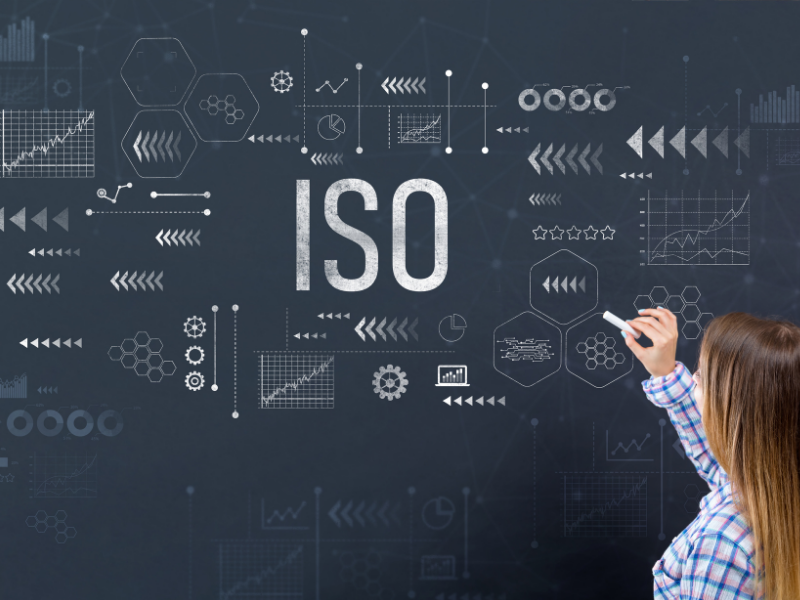.jpg?ext=.jpg)
ISO 9001 Versus ISO 27001

ISO 27001 focuses on information security management systems (ISMS) while ISO 9001 focuses on quality management systems. By working on both standards together, a company can maximize efficiency in achieving two respected ISO standards, improve operational performance, and increase customer satisfaction.
Smithers has been in business for a century and has conducted audits against ISO standards since 1993. Working with us on your ISO certifications will assure you an audit that is transparent, relationship-based, and reflective of our accumulative experience.
ISO 27001 vs ISO 9001
ISO 27001 evaluates your organization's approach to information security, especially your company's ISMS (Information Security Management System). Along with other cybersecurity frameworks, ISO 27001 will help you ensure your information, and that of your customers, is constantly monitored and protected.
ISO 9001:2015 is a quality management standard, or QMS. Achieving ISO 9001 status reflects your company’s commitment to quality and also offers independent validation of your quality management system. Achieving an ISO standard can also assist in differentiating you from the competition. Smithers has years of experience in certifying companies to this standard, and we offer a myriad of resources to assist in your compliance journey, including a helpful checklist and several different gap analyses, including one between ISO 9001 and 45001. ISO 9001 is built on the Plan-Do-Check-Act framework (PDCA). ISO defines PDCA as a “cycle of continual improvement, with risk-based thinking at each stage.”
What is ISO 27001?
While ISO 9001 might be called “the grandfather” of ISO standards, ISO 27001 is much newer and less well-known. Published in 2005, the standard was revised in 2013 and then again in 2022. The ISO 27001 standard is not a requirement for all companies, whereas ISO 9001 is universal. It also is distinct from NIST SP 800-171 in that it does not have anything to do with Controlled Unclassified Information (CUI). It is a cybersecurity standard of sorts, but the primary focus, as mentioned above, is the ISMS. An Information Security Management System is a system that helps companies monitor and protect their data.
Just as ISO 9001 helps maximize the efficiency of a quality management system, ISO 27001 drives compliance with cybersecurity controls that will maximize the security of information. ISO 27001 is an international standard, so it is ideal for companies that work with clients abroad. It is not, however, a direct replacement for the European GDPR standard, which focuses on protection of personal data.
Comparing ISO 9001 with ISO 27001
Smithers has created a detailed guide for your reference that will assist in determing the following:
- If you are ISO 9001 certified, should you pursue ISO 27001 as well?
- If you decide you should achieve ISO 27001 certification and are already ISO 9001 certified, how much of a gap is there to fill?
- If you are interested in both standards, what is the most efficient and effective way to achieve both ISO 9001 and 27001 certification?
While the downloadable guide will help answer many questions, it is probable more questions will arise for your company as you explore the information. Contact us to learn more about these standards as well as how they can overlap with complying to NIST/CMMC and Cyber Insurance requirements.